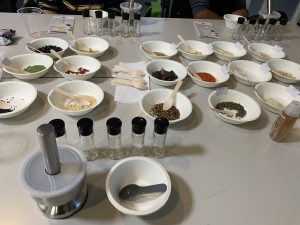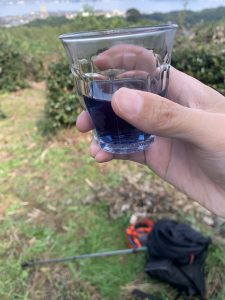Tamatsukuri Onsen ー A progressive young doctor is trying to expedite the use of Kampo medicine and spa therapies in Tamatsukuri, part of the capital city of Shimane Prefecture. Tamatsukuri has hot springs and a colourful history dating back 1,300 years; it is located two hours by air from Tokyo(Haneda), eight hours by bullet train and local railway, and 12 hours by night sleeper train (Sun Rise Izumo). Dr. Ryo Kataoka, 30, studied Western medicine at Shimane University of Medicine and now works for Matsue City Hospital as an intern. He also runs a Kampo medicine company called Yakumo, an ancient Shimane name tied to Japanese myth, to treat patients and stimulate the Tamatsukuri economy(Yakumo is near Izumo Grand Shrine of Izumo city).
Shimane is Japan’s second least populous prefecture, but myth accounts for many stories about it. The Sea of Japan surrounds the region on the north, and ancient Japanese historical records say this geographical feature had brought Tamatsukuri Chinese medicines from the Korean peninsula, and then Japanese ancestry turned the medicines into Kampo medicines approximately the 5th to 6th century. Tamatsukuri, according to the ancient Shimane prefectural record Izumo Fudoki, describes the Japanese god Sukunahiko as curing his bad fitness with Kampo medicine and spa therapy. The medicines subsequently developed into a unique form of medicine by adapting to the climate and culture of Japan and were further refined to suit the constitutions of the Japanese. In the 17th century, kampo medicines reached their culmination. Kampo medicine focuses on humanity’s natural healing abilities, using herbs and hot springs to accelerate the restoration of health by using the human body’s reactions to therapeutic interventions.
The Tamatsukuri people and others in Japan used Kampo medicine until Japan became Westernised at the end of the 19th century. At this time, Japan waned from using Kampo medicine, relinquishing herbal remedies and spa therapy as outdated.
Yet, contemporary Japanese society is now seeing the value of ancient herbal medicines because many modern Japanese suffer from stress. In 2020, a bar master, Dr. Kataoka’s current business partner in Yakumo, suffered from depression owing to plunging sales caused by the COVID-19 pandemic. However, herbal medicine cured his symptoms and allowed him to resume business. This gave Dr. Kataoka a strong interest in Kampo medicine, leading him to the world of herbal remedies. He was determined to study this medical approach for his patients under a distinguished herbal doctor, and this brought him deep knowledge of herbal therapy.

“Western medicine prefers a regional approach and locks on affected parts with drugs and operations,” Dr. Kataoka said. “That is a monotonic approach, whereas Kampo medicine sees arranging the energy balance of the whole human body as important, which is a systematic approach.”
Kataoka wants to make the most of both merits for his patients. The herbal master doctor also pays attention to spa therapy, and Matsue’s famous hot spring resort, Tamatsukuri, was chosen for his next experiment. Before COVID-19, Tamatsukuri thrived as a mecca for skin enhancement, attracting many wanna-be beautiful, young, wealthy Japanese women. However, the pandemic prevented visits to Tamatsukuri from 2020, and its economy stalled. Reflecting on this, Dr. Kataoka created a new value-added incentive by combining Kampo medicine and Tamatsukuri hot springs to enhance these women’s beauty and well-being. He wanted to contribute to galvanising Tamatsukuri’s economy using his herbal remedy knowledge and techniques.
In 2021, Kataoka focused on the efficacy of herbal remedies and spa therapy to prevent mibyou, or pre-symptomatic disease, a state of health in which a condition slowly develops within the body, although the symptoms are not apparent. Common examples of mibyou in modern medicine include diseases caused by chronic inflammation. Kampo medicine has often been used for the A single dip in the spring enhances their physical beauty; a second dip cures all their ailments. This mibyou prevention is thought of as having huge potential to attract those eager to maintain their health to Tamatsukuri.
As of 2023, the doctor’s steps to cure and prevent symptoms are receiving a strong reputation from the Tamatsukuri people, who have requested further development to apply other symptoms, such as fatigue, insufficient sleep, and mental disorders. To live up to their expectations, Dr.Kataoka is deepening his study of Kampo medicine to revitalise Tamatsukuri.

(Takashi Saito)

